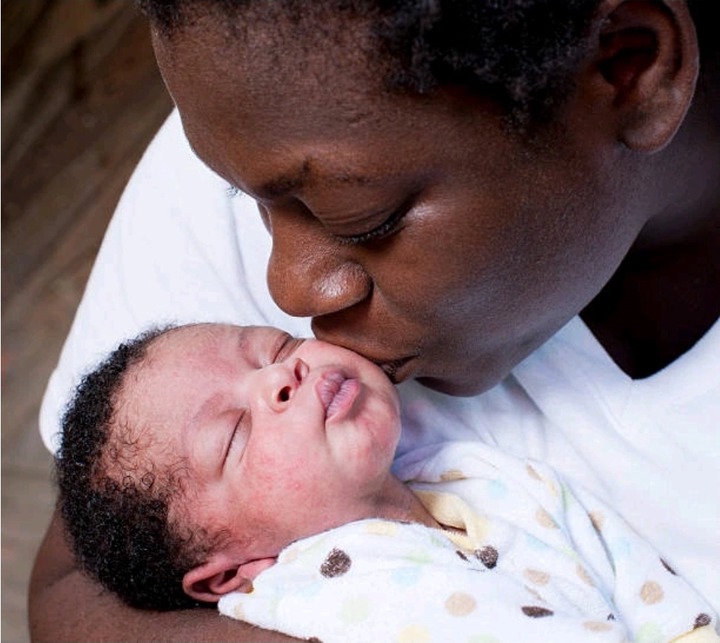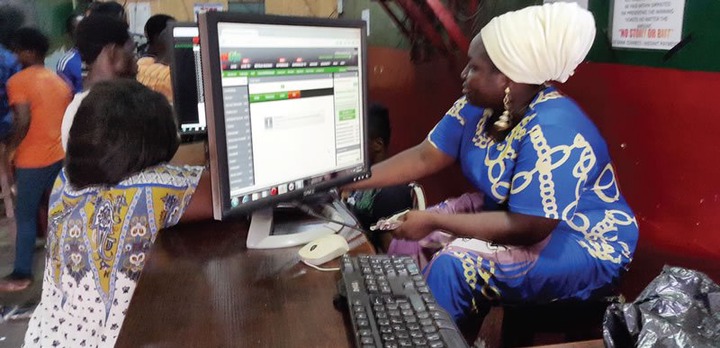
Embarking on the path to parenthood is a thrilling prospect, but it can also evoke financial concerns, JOSEPHINE OGUNDEJI writes
Embarking on the journey towards parenthood is like stepping into a thrilling adventure, but it can also be akin to walking a financial tightrope. The idea of taking on the financial responsibility for a new, tiny family member can stir up a whirlwind of emotions. Whether you’re already diving into prenatal classes or merely starting to picture a future filled with delightful baby clothes shopping and the careful selection of the perfect crib, one undeniable truth shines through: Preparation is your compass on this exciting journey. By crafting a budget before and during pregnancy, you can ensure that you welcome your baby into the world with open arms and open wallets, without the looming shadow of excessive financial stress.
According to an article on Experian authored by Hilary Back, while the latest jogging stroller and nursery decor may be fun to shop for, there’s a wide range of costs during and after pregnancy to be aware of. From health care to baby things, among others, these expenses will need to be part of your budget as you prepare for childbirth and beyond.
How to Budget for Baby Costs
Budgets come as a breeze for some people; for others, there are strategies and apps galore to help you with the task. Regardless, add a baby to the picture and budgeting inevitably gets more complex. If you’ve never had a budget before, now is the time to start.
Map out your spending on paper: Begin by following where each naira goes so you can account for your spending. Go through bank and credit card statements and hold on to your receipts so you can physically see where your money goes each month.
Open a savings account: Commencing your savings journey early is essential to accumulate the necessary funds for your baby-related expenses and to provide financial security during potential periods of reduced income. Opt for an account that offers the flexibility to withdraw funds when necessary rather than one with strict restrictions on access to your money. Nevertheless, if you’re concerned about the temptation to spend your savings impulsively, consider selecting a savings account that does not provide a debit card for easy cash access.
Find a budgeting method that works: It might be a good time to assign a job for every naira with zero-based budgeting into different accounts. The 50/30/20 divides your budget into necessities, discretionary items, and a third category for debt payments and savings. Research a few strategies and choose one you’ll be able to stick with long-term.
Check your health insurance: Insurers technically have to cover childbirth and maternity care, but coverage differs from one plan to the next. Check out the details for your provider’s coverage, and add your spouse’s insurance as secondary coverage if you feel it necessary. Adding a family member to an insurance plan will likely increase the cost, so find out what additional longer-term insurance costs you may be facing.
Spend and save wisely: For starters, buy diapers in bulk for significant cost savings (or consider going the cloth diaper route), and use free samples and coupons. Beyond baby costs, come up with ways to save money daily and monthly, and be sure you have an emergency fund in place for unexpected necessary expenses.
Consider any income changes: If either parent plans to work less during child-rearing years that will need to be a major factor in your number-crunching.
Prepare for surprises
Even the best planned budgets can be disrupted by unexpected expenses related to pregnancy and raising a child. While having a budget and building emergency funds are essential, it’s important to acknowledge that unforeseen financial needs may arise. In such situations, responsible use of loans or credit cards can help manage expenses without causing severe financial strain or harming your credit.
Children start picking up on financial habits early, typically by the age of three. Therefore, establishing a solid budget and maintaining good credit now can simplify the process of teaching your children about money later on. While budgeting during pregnancy and throughout parenthood doesn’t necessarily make raising kids inexpensive, it does ensure that you’re better prepared when your precious little one arrives.
In an exclusive interview with The PUNCH, a mother of one, Remi Akinrele, said the journey from pregnancy to parenthood was marked by a rollercoaster of emotions, with financial considerations playing a significant role for her.
She said,” When I first discovered I was pregnant, excitement mixed with apprehension flooded my thoughts. I couldn’t wait to hold my baby in my arms, but I also knew that the road ahead would demand careful financial planning.
“The first trimester was all about visiting the doctor for prenatal check-ups and stocking up on prenatal vitamins and supplements. These expenses, while necessary, added a strain to our budget. We had to shuffle our finances to accommodate these extra costs, cutting back on non-essential expenses and dining out less frequently. As the pregnancy progressed, medical expenses continued to rise.”
Akinrele noted that after the birth of her child, the financial responsibilities didn’t end.
She added, “After the birth of our child, the financial responsibilities didn’t end, postpartum care and baby-related expenses continued. These included follow-up medical appointments, baby vaccinations, and the ongoing cost of diapers and baby formula.
“Another significant consideration was childcare. It is common for extended family members to provide support, but we still had to budget for occasional babysitters or daycare when family help wasn’t available.”
Speaking to a father of twin boys, Badmus Bamidele, he said he had to be more deeply involved in the twins’ entry into the world.
He said, “The anticipation of our child’s arrival filled our hearts with excitement. As a father, I became deeply involved in preparing for our baby’s needs. Budgeting for cribs, baby clothes, and diapers became my mission, and I was determined to provide the best for our growing family.
“My partner’s maternity leave presented a unique financial challenge. We knew that her income would temporarily decrease, so I took on additional responsibilities and worked extra hours to maintain our financial stability during this period.
“It was a small sacrifice in exchange for the precious moments with our newborn. As our child grew and took their first steps, we began thinking about their future. We opened a savings account for their education and explored long-term investments to secure their financial well-being. These decisions were driven by our unwavering commitment to providing the best opportunities for our child.”
A single mother of one, Funmilola Jacob, said the period was a strenuous one as she could not afford the expenses.
“When I first discovered I was pregnant, a mix of emotions washed over me, dominated by fear and uncertainty. As a poor woman in Nigeria, I knew that this journey would be fraught with financial challenges. The joy of impending motherhood was accompanied by the burden of wondering how we would make ends meet,’’ she said.
“Prenatal care became a luxury I could not afford, I gave birth out of wedlock, and hence my family left me to cater for myself. Each doctor’s visit felt like a distant dream, a glimpse of the care we wished we could provide for our unborn child. We struggled to find ways to ensure a healthy pregnancy without stretching our already thin budget.”
According to Jacobs, preparing for her baby’s arrival was a daily battle, as she scoured markets for the cheapest baby items, settling for second-hand clothes and basic essentials.
She added, “Every purchase was a reminder of the compromises I had to make due to my financial limitations. Maternity leave was a period of financial struggle. With no partner to help, bills piled up, and the fear of not being able to provide loomed large.”
In the intricate period toward the path to parenthood, the financial realities that emerge demand not only resilience and unwavering love but also a deliberate and intentional approach to managing resources.
From the discovery of pregnancy to the hurdles of obtaining prenatal care, from the dreams of securing a better future to the pragmatic choices regarding maternity leave and healthcare, the financial journey of parenthood takes on diverse forms.
It is a testament to the enduring spirit of parents who, regardless of their financial circumstances, embark on this life-altering expedition with intentionality.
Facing financial constraints, particularly in Nigeria exhibit a tenacity to provide for their offspring that is rooted in purposeful planning, making calculated sacrifices, adapting to circumstances, and drawing upon the support of their extended families and communities to safeguard the well-being of their children.
It serves as a poignant reminder that parenthood transcends economic boundaries, as the true currency of this journey is the immeasurable love and devotion parents have for their children, channeled through a deliberate financial strategy.
In the end, the financial journey of parenthood becomes a profound story of hope against adversity, of selfless sacrifices made in the name of love, and of dreams nurtured with an unwavering belief in a brighter future, all underpinned by a purposeful and intentional approach to managing resources.
It is a testament to the indomitable human spirit and the profound love that parents harbour for their children, a love that is amplified by their thoughtful and strategic financial choices made along the way.











Leave a Comment